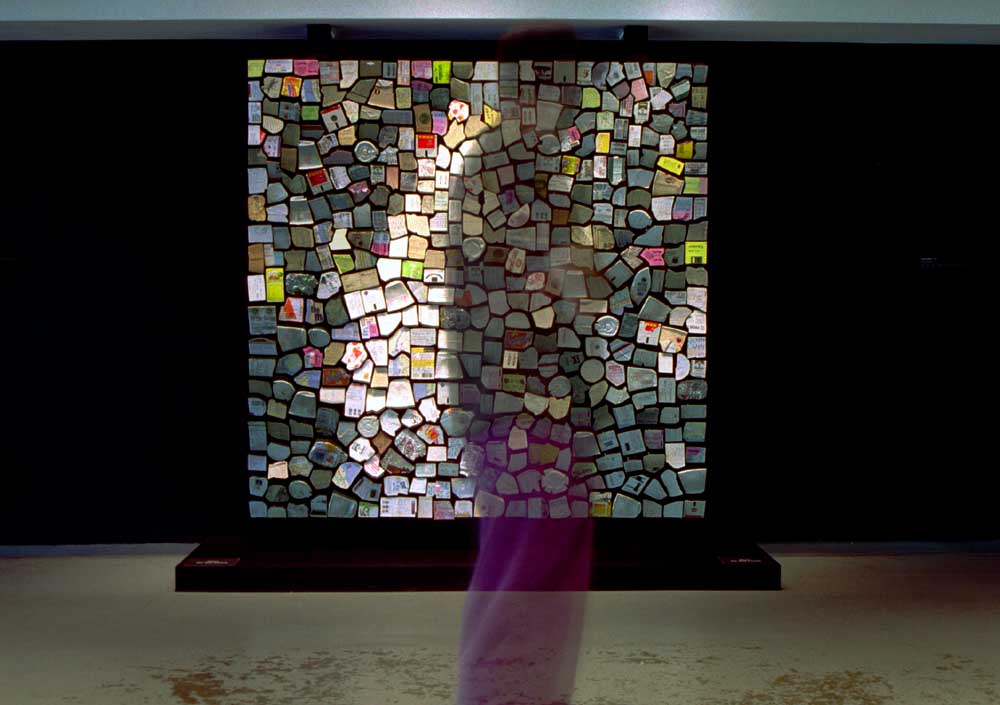
Picture of the Trash Mirror at the American Museum of the Moving Image. Click to enlarge
Trash Mirror 2002
Trash Mirror is made of 500 pieces of trash collected between February and June
2002 on the streets of New York and in my pockets. These pieces were flattened
and connected to motors, and with the help of a computer they are orchestrated
to reflect whomever stands in front of the piece.
Like many of my other works this piece attempts to combine more than one level
of information. From afar the image of the reflected person can be vividly observed
and the contents of the trash cannot. Up close, the trash becomes visible and
interesting while the image is too course to be comprehended.
This piece is quite similar in some aspects to my previous piece “Wooden
Mirror” 1999 and though this piece was built later (2002) it was conceived
first. I decided to build “Wooden Mirror” first as a proof of concept
as I was not confident that the extreme concept of “Trash Mirror”
would technically work.
As the trash pieces have irregular shapes, the surface is very different from
the orderly X by Y grid that is used for digital displays and the trash pieces
do not come through as "pixels', instead the piece celebrates the ability
of computation to make sense and orchestrate even the messiest of substances.
Because the trash that comprises the surface of this piece has many shades and
colors and varies in shape and size, the computer needs to be extra smart to
decide how to move each piece in order to create the best reflection of the
viewer. In order to do so the computer has a very intimate knowledge of every
piece of trash, in fact, the first stage of programming the Trash Mirror involved
having the computer teach itself the exact placement of each piece by pointing
a video camera at the piece itself rather than the viewer.
Dimensions, materials:
215 cm wide 215 cm tall 15 cm deep
Wood, trash, servo motors, video camera, computer.

Picture of the Trash Mirror at the American Museum of the Moving Image. Click
to enlarge